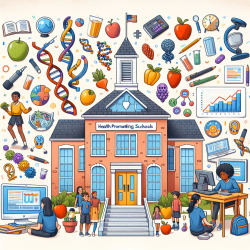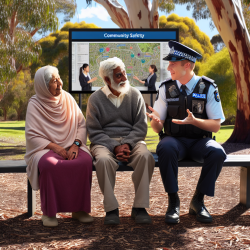Reflexivity and Humility: Transforming Methodologies in Post-Disaster Contexts
In the aftermath of disasters, the role of researchers and practitioners becomes crucial in understanding and addressing the needs of affected communities. The research article titled "Reflexivity and Humility Evoke a Transformable Methodology in a Post-Disaster Context" by M. T. Guzzardo et al. sheds light on the importance of reflexivity and humility in conducting qualitative research, particularly in post-disaster settings like Puerto Rico after Hurricane María.
Understanding Reflexivity and Humility
Reflexivity involves a continuous process of critical self-examination and reflection on one's own positionalities and biases as a researcher. It encourages researchers to be mindful of their influence on the research process and outcomes. Humility, on the other hand, is about recognizing the limitations of one's knowledge and being open to learning from the community being studied.
Transformable Methodologies
The research conducted by Guzzardo et al. emphasizes the need for flexible and adaptive methodologies in post-disaster contexts. The initial research design had to be expanded to accommodate the preferences and needs of participants, as well as the situational characteristics of the field. This flexibility required humility from the researchers, allowing them to adapt to community involvement and build rapport with local leaders and participants.
Relational Inquiry and Decolonizing Methodologies
A relational form of inquiry emerged as a crucial aspect of the research process. This approach acknowledges the intersubjectivity of human experience and emphasizes the importance of building relationships with participants. The study suggests incorporating principles of indigenous decolonizing methodologies, which focus on the participants' goals and perspectives, allowing them to play an active role in research design and data collection.
Implications for Practitioners
For practitioners in the field of special education and beyond, embracing reflexivity and humility can lead to more effective and ethical practices. By adopting transformable methodologies, practitioners can better address the unique needs of communities in post-disaster contexts. This approach not only enhances the quality of research but also fosters trust and collaboration with the communities being served.
Encouraging Further Research
Practitioners are encouraged to delve deeper into the principles of reflexivity and humility and explore how these concepts can be integrated into their own work. By doing so, they can contribute to the development of more inclusive and responsive practices that prioritize the voices and needs of marginalized communities.
To read the original research paper, please follow this link: Reflexivity and humility evoke a transformable methodology in a post disaster context.










